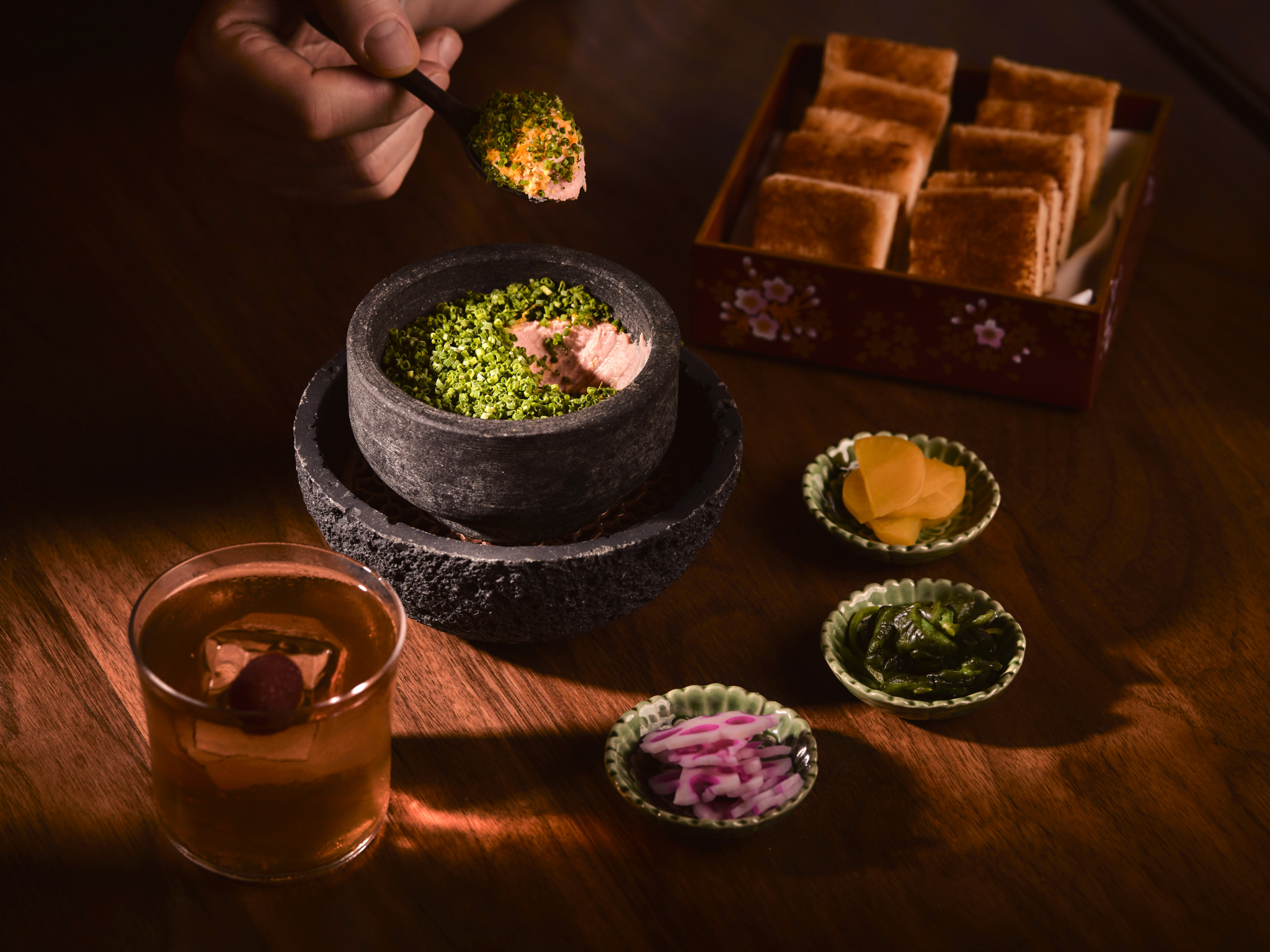8 Mins Read
Australian cultivated meat startup Vow has been cleared to sell in Hong Kong, where it will debut cultured foie gras at the Mandarin Oriental.
Six months after rolling out its cultured quail parfait in Singapore, Vow is expanding to Hong Kong with its latest product, Forged Gras.
It is the first cultivated meat company to satisfy the safety requirements set by Hong Kong’s Centre for Food Safety (CFS), a feat confirmed by its approval from the Singapore Food Agency earlier this year.
The Sydney-based startup is also the first to sell multiple cultivated meat products in multiple markets, with its versions of quail parfait and foie gras both available at restaurants in Hong Kong.
Vow will debut the foie gras – sold under its Forged brand – at The Aubrey, an izakaya at the Mandarin Oriental, reveals co-founder and CEO George Peppou. “The Aubrey’s Japanese izakaya-style setting provides the perfect backdrop for showcasing our cultured Japanese quail products,” he tells Green Queen.
“Forged Parfait will feature in a dish exclusive to Hong Kong, served within smoke and topped with citric, yuzu and chives alongside brioche and pickles,” he says. The dish is priced at HK$388 ($49.85), with the option to add caviar for another HK$198 ($25.45).
For the launch month, a limited-edition cocktail will also be available to diners, costing HK$170 ($21.85). “Crafted by Devender Sehgal, the cocktail – titled ‘Senses’ – is a new take on an old fashioned, fat-washed with the Forged Gras to deliver a deep, rich flavour, complemented with herbal notes and a touch of nuttiness,” explains Peppou.
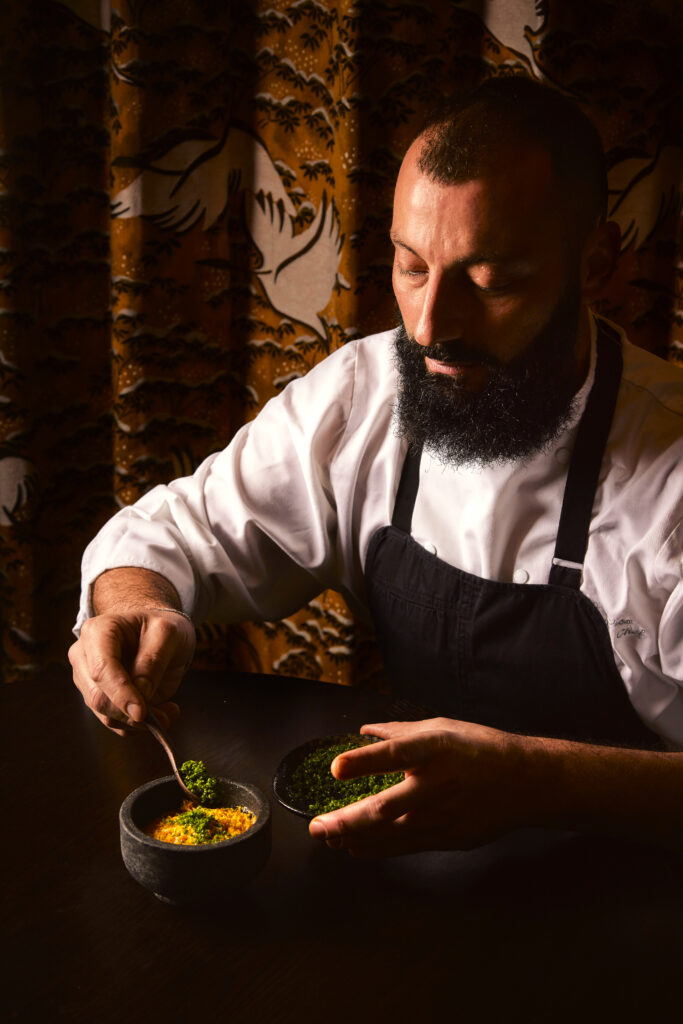
Vow’s cultured foie gras targets a new taste experience
Forged Gras comprises 51% of Vow’s cultured Japanese quail, which lends the product a “rich umami and subtle gamey flavour”, Peppou says: “To achieve its luxurious texture and melt-in-your-mouth experience, we blend this with a thoughtful selection of ingredients – vegetable and herb-infused coconut oil, sunflower oil, and fava bean protein.”
He adds: “These are then balanced with konjac, carrageenan, and yeast extract to perfect the structure and enhance flavour. Natural vegetable and fruit concentrates (beetroot, carrot, radish, and turmeric) are added for a subtle colour and depth.”
Like caviar and bluefin tuna, foie gras is one of the world’s most exclusive and lucrative foods, but it’s also highly problematic. Traditionally, the French delicacy entails force-feeding a duck or goose to fatten their liver, which is then sold whole or as part of a mousse, pâté, or other similar preparations.
The act of feeding these birds against their will and more than what they’d normally eat – frequently to 10 times their usual volume and in intensive farming settings – has spurred many cities and countries to ban foie gras production, including India, Argentina, Germany, Italy, and Turkey. In France, too, 15 cities have outlawed the food.

But Vow isn’t just targeting the cruelty aspect with its cultured foie gras. In a 1,000-person survey, it found that of the 92% of American meat-eaters who hadn’t tried the delicacy, only 5% cite ethical reasons for not doing so.
So the company is hoping to offer a new flavour experience with Forged Gras, one that provides the gamey notes of Japanese quail with the texture of fatty liver. Its scalable production process, meanwhile, will make the product “accessible beyond the limits of scarcity”.
“At Vow, we’re paving a new path for food by using innovative technology to address real challenges around foods that people want, but can’t access,” says Peppou. “The launch of Forged Gras continues our mission to bring scarce or never-before-seen foods to millions, but does so in a way that seeks to innovate, not imitate. By fostering culinary imagination, we aim to create something entirely new, unconstrained by the tradition of even the oldest delicacies.”
Singapore approval a benchmark for Hong Kong greenlight
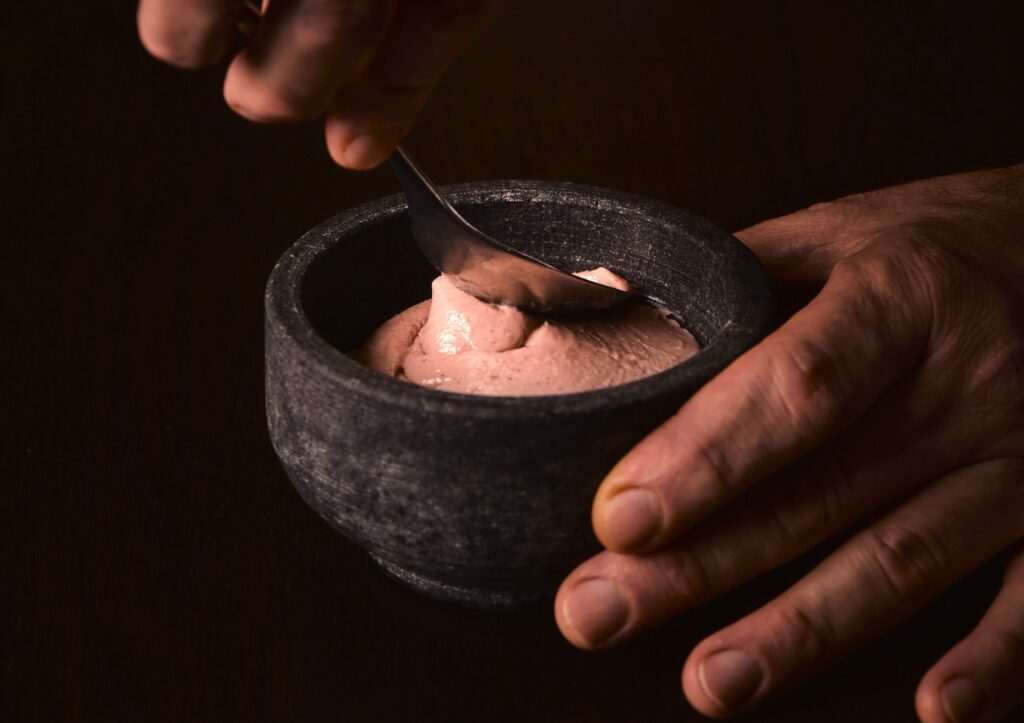
In Hong Kong, food safety regulation is overseen by the CFS, which falls under the Food and Environmental Hygiene Department (FEHD). “The CFS has issued guidance outlining the safety assessments required for cultured meat to meet regulatory standards. Vow has met these requirements, with our approval from the Singapore Food Agency in March 2024 confirming that our products meet CFS safety standards,” Peppou tells Green Queen.
Singapore was the first country to greenlight the sale of cultivated meat, granting it to Eat Just’s Good Meat brand in 2020, and its regulatory framework is welcomed as a benchmark by several other countries. The UK has been working on such a model of international cooperation too, and Dutch cultivated pork startup Meatable plans to use this approach to gain clearance in several countries next year.
“We too are always looking at locations where our approval in one region would allow us to enter quickly,” confirms Peppou.
“We are confident that Hong Kong’s regulatory framework will continue to support the safe introduction of cultured meat, and will continue to actively engage with CFS and FEHD to ensure these standards are maintained and supported across the industry,” he adds.
Vow’s newest market has shown considerable interest in cultivated meat. In a 2021 poll, 96% of Hong Kong residents expressed interest in trying these proteins. A more recent survey suggests a much lower – but still sizeable – acceptance rate at 28%.
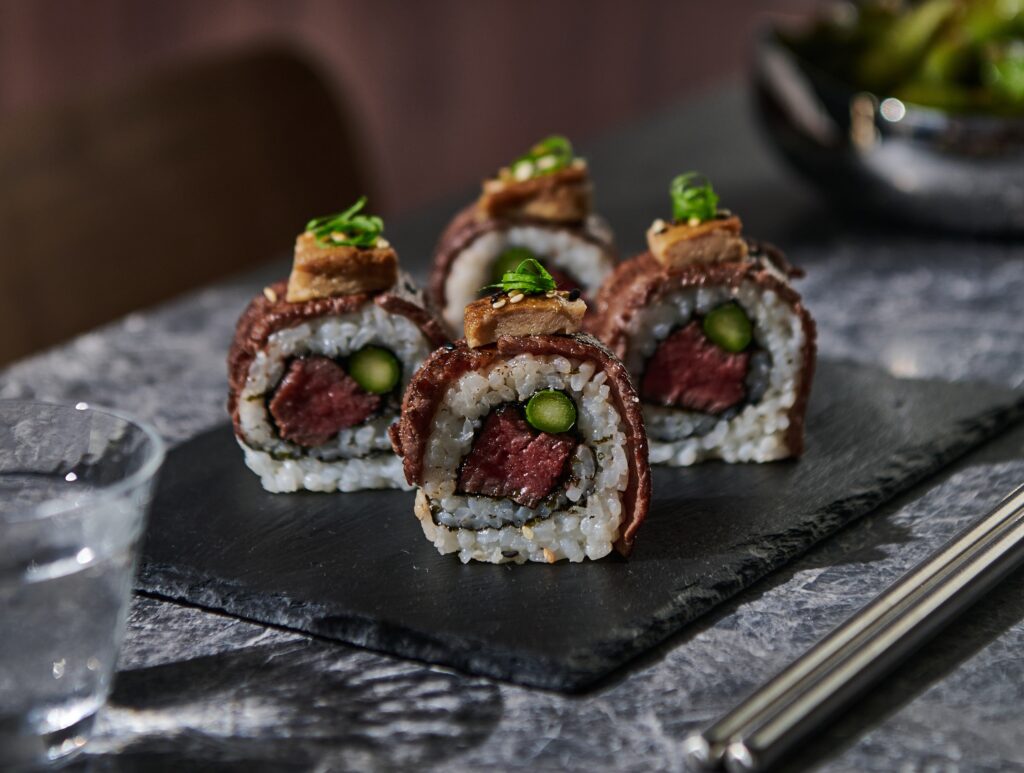
That said, Vow has its sights set globally. To celebrate the launch of Forged Gras, it approached Masa Takayama, the chef-owner of three-Michelin-starred sushi restaurant Masa in New York City, to design a new menu featuring Vow’s cultured quail.
“We work with visionary chefs around the world, creating entirely new meats that inspire them to reimagine what’s possible in the kitchen,” says Peppou. “Chef Masa Takayama is a true innovator who immediately saw the potential of Forged Gras, and used both to craft exceptional dishes, showcasing its versatility and flavour in ways only he could.”
He adds: “While we’re not approved for sale in the US, this exclusive preview was an opportunity to share Forged with top tastemakers and gather their feedback from those further away from Singapore and Hong Kong.”
Vow has made progress in its application with Food Standards Australia New Zealand, which has opened a second round of public consultations, running until Christmas Eve. “As we expected, FSANZ confirmed that no new evidence had arisen from the first public consultation, or in the public domain since the first round closed, that altered their assessment that our cell-cultured quail was safe for human consumption,” notes Peppou.
“Given the projected timelines shared with us by FSANZ, we anticipate an approval decision will be made in Q1 2025.”
Vow’s ‘unique’ approach key to its success
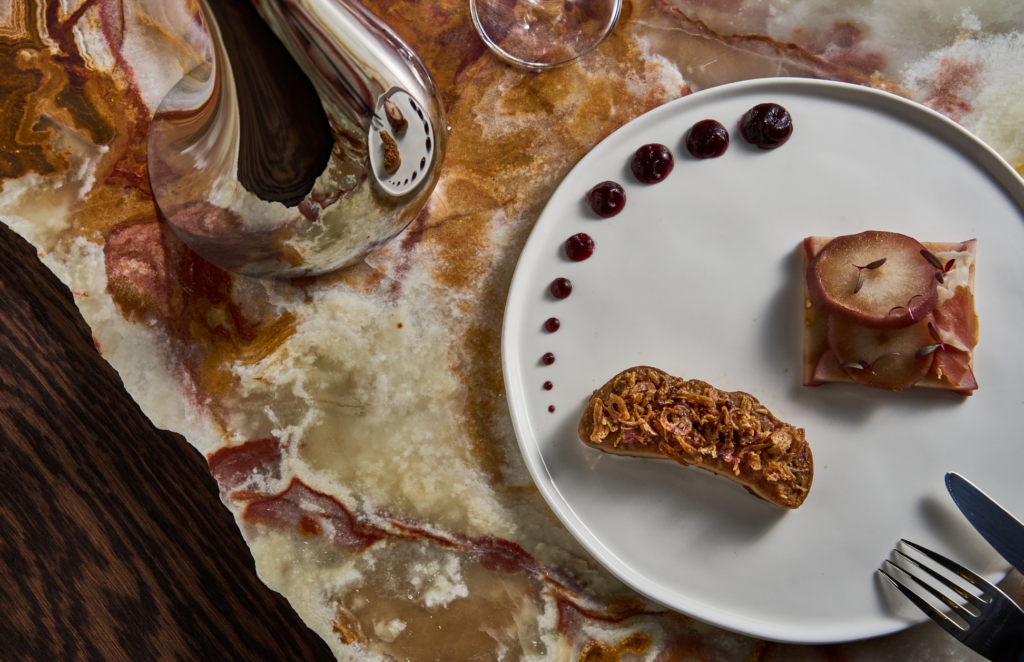
Peppou established Vow in 2019 with chief commercial officer Tim Noakesmith. The company calls its production system “the most efficient and extensive operation” in the industry, allowing it to achieve regulatory clearance faster than counterparts like Upside Foods (which took eight years) and Aleph Farms (six years). It has done so with $56M in investment, much lower than the $270M raised by Good Meat, or the $608M secured by Upside Foods.
“We attribute our success to a few key factors, all of which are unique to Vow. We deliberately started with an entirely new meat product, specifically the high-end market – a product that excited chefs and consumers because it offered something deliberately different to anything else, instead of just being an expensive replication of something they already know,” says Peppou. “That has allowed us to sell at higher margins from the outset, to a market that wants to experience new and different foods.”
Vow owns one of the world’s largest cultivated meat facilities, Factory 1, which can produce 30 tonnes of protein per year. A sister site, Factory 2, is in development, boasting a capacity 100 times higher. “We took a different path to the cultured meat industry, which has used existing pharmaceutical manufacturing platforms that are ridiculously expensive and over-engineered for food production,” the CEO explains.
“We have continuously vertically integrated wherever possible to reduce costs and iteration cycles, achieving now an end-to-end in-house scaled production system. We also borrowed talent from other cutting-edge industries (like engineers from SpaceX’s starship programme) to build our own equipment, including designing and commissioning the world’s largest operational food-grade cell-culture bioreactor built at less than 80% of the market estimate for its size.
“The combination of both is Vow selling products that our customers selfishly choose, and being able to scale production and meet demand far quicker and cheaper than the competition.”
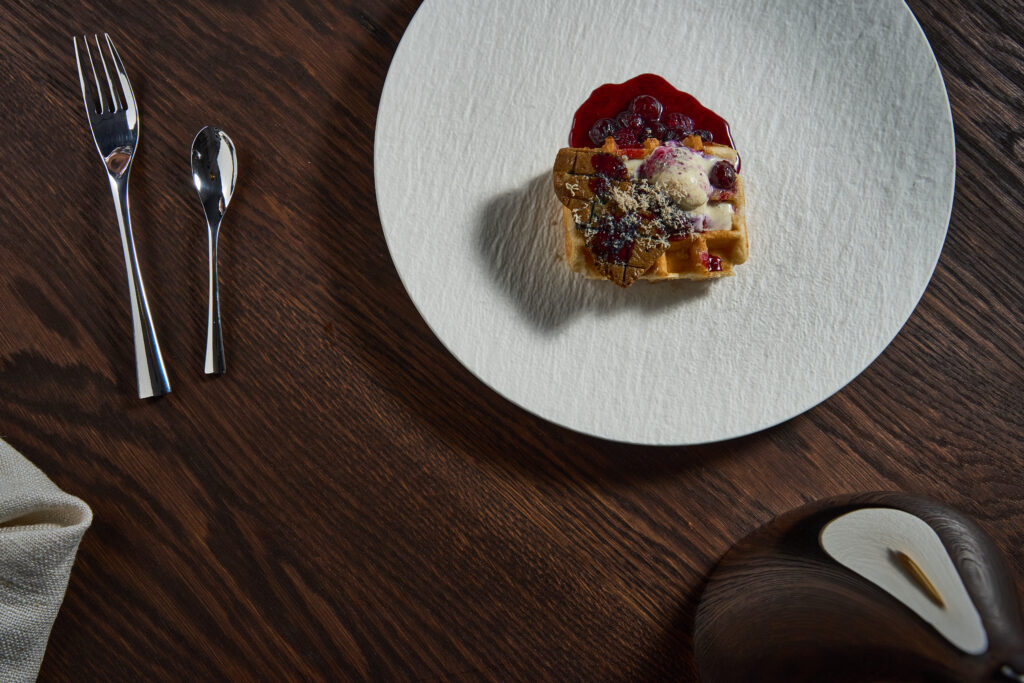
Vow will soon announce other Hong Kong venues where the Forged products will be available. But it’s not the only company making cultivated foie gras, with France’s Gourmey pursuing approval in five markets (including the EU).
There may yet be more approvals for cultivated meat before the end of 2024, but either way, it has been a seminal year for the industry. Vow’s two greenlights join the successes of Aleph Farms (Israel) and pet-focused Meatly (UK) in the last 12 months, with several other startups poised to join the list next year.
Peppou’s plan for Vow is to bring cultured meat to more plates. “We’ll be bringing more products to market, and hopefully see other markets open up, but our real priority is working with chefs in Singapore and Hong Kong to deliver incredible dining experiences with Forged Parfait and Forged Gras,” he says.
Amid an uncertain future for food tech in the US, with the impending presidency of Donald Trump, more companies could be looking elsewhere to succeed. Vow’s foray into Hong Kong, in the wider context, could be a sign of the times.
This story was updated to clarify that Vow has not received regulatory approval in Hong Kong, but was cleared to sell as it met safety standards based on its Singaporean approval.

